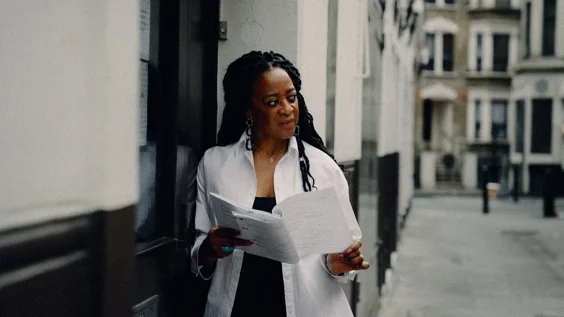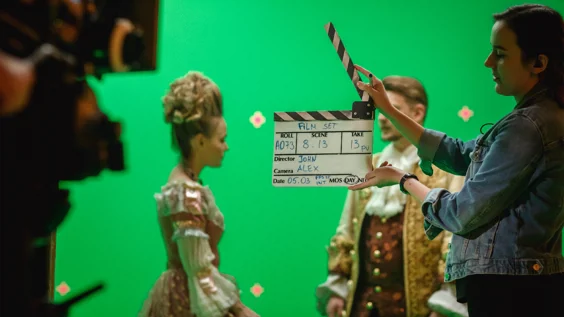Health and Safety Legislation does not state any maximum indoor or outdoor temperatures for work - but the law classifies heat as a hazard. This means there are legal obligations to assess heat as a risk whether working indoors or outdoors.
We believe that 27 degrees (°C) should be the cut-off for strenuous work – like performing a number in a musical in full costume. Alongside the TUC, we are calling for 30 degrees to be the absolute limit for work. As the climate crisis escalates, we are likely to face more frequent heatwaves and increasingly unsafe working conditions.
Below you can find advice for working in high temperatures and find out why we’re calling for a maximum working temperature.
Circumstances for safe working are currently considered on a case-by-case basis.
Equity's 10 practical steps for members working in a heatwave
- Talk to people! Don’t keep your concerns to yourself. Make it a union issue by talking to your fellow cast and crew. If you’ve got an Equity Deputy, raise it with them. By collectivising the issue, you’re making your voice stronger
- Open a discussion with your engager to talk about the needs of your Company. Ask for a risk assessment to be undertaken.
- Report immediately if you start to feel unwell - heat related exhaustion and illness is very serious and can escalate quickly.
- Stay hydrated. A regular safe supply of cool water should be provided.
- Heat mitigation measures when working:
Stage/studio: To reduce heat on set/stage, ask if it’s possible to minimise when the lighting rig is on before and after performances whenever practicable.
Outdoor spaces: When dealing with hot weather at outdoor venues/locations, request adequate shade between scenes and an air-conditioned space for breaks and down-time.
What about cold weather outdoors?
Per the Health and Safety Executive’s Approved Code of Practice (APOC), this also applies when working in sustained cold temperatures below 13°C (16°C indoors), request blankets and overcoats for in between scenes, and a heated space for breaks and down-time. - Performers and backstage workers in costume should open a discussion with the wardrobe department and designer about what can be done to reduce the weight and warmth of costumes. Take advantage of any breaks in action to take layers off.
- Ask for strenuous choreography to be modified especially if there are company members starting to feel unwell.
- Ask to structure rehearsals as much as practicable to avoid working (or at least strenuous physical work such as dance calls) in the strongest heat of the day. Persons involved in scheduling should minimise call times for those required to be in hot spaces and/or in costume.
- Preparing your venue:
For indoor spaces:
Ask production management to liaise with crew/members of venue staff to ask if they could assist by turning on ventilation systems early instead of waiting until the show staff arrive. If ventilation systems are not available ask for fans or temporary air conditioning units to be installed.
For outdoor spaces:
- Whenever possible stay out of direct sunlight and find shaded areas.
- Keep key parts of the body cool such as your wrists, feet and backs of the knees and neck. Request cool packs/cold compress where necessary.
- Check UV levels daily and raise concerns with production where necessary. Always remember to wear sun cream with high UVA and UVB ratings and apply regularly. 60% of daily UV occurs between 10am and 2pm. Follow NHS guidance about when and how to apply sunscreen.
- Open a discussion with make-up teams about ensuring adequate sunscreen protection is incorporated within the required make-up application for your role, and that this protection can be maintained/reapplied where possible, per NHS guidelines, throughout the required period of outdoor working. - If you feel it will be too dangerous to work, please contact your Equity Official for support and advice.
Theatre Safety Committee guidance
Equity is part of the Theatre Safety Committee, which has published guidance for working during hot weather.
Get training from Equity on health and safety
Check back here for the latest trainings and resources on health and safety from Equity’s education team. Contact training@equity.org.uk if your cast or company wants a bespoke H&S training for your workplace.

